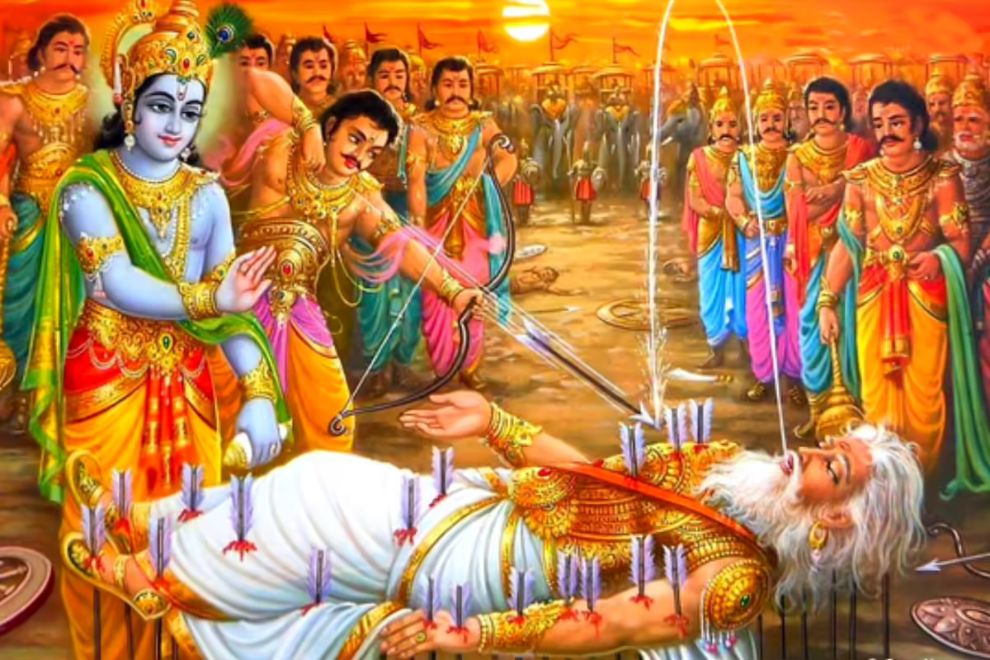A Warrior’s Vow, A Kingdom’s Fall
In the epic Mahabharat, Bhishma is remembered as the invincible warrior, the noble patriarch, and the pillar of the Kuru dynasty. But beneath the grandeur lies a haunting truth: Bhishma’s greatest flaw was his silence.
Bound by vows of loyalty and neutrality, Bhishma stood by as injustice festered within the very system he swore to protect. His curse—both literal and symbolic—is not just about his deathless body, but the eternal torment of witnessing destruction he could have prevented.
The Curse: What Was It, Really?
Bhishma was cursed with the power to choose the moment of his death—immortality on the battlefield, pierced by arrows but unable to die. On the surface, it seems like a boon. In reality, it was a slow-burning curse, forcing him to watch the collapse of his lineage and ideals.
But the real curse? It was this:
Being alive long enough to see your silence fuel the fire that burns everything you love.
Bhishma’s Silence: When Duty Becomes Complicity
Bhishma chose dharma (duty) over action. He honored his oath to serve the Kuru throne, even when that throne protected injustice. From Draupadi’s humiliation to the blind loyalty to Duryodhana, Bhishma remained silent, always defending the system but never questioning its rot.
His silence wasn’t passive—it was destructive.
In toxic systems, neutrality isn’t safety—it’s permission. By not speaking out, Bhishma empowered those who thrived on corruption and cruelty.
Why This Still Matters Today
Bhishma’s story isn’t just mythology—it’s a mirror for every workplace, institution, family, or government where silence sustains harm.
Ask yourself:
- Have you seen wrong but said nothing?
- Have you chosen comfort over confrontation?
- Have you let “duty” or “respect” stop you from questioning power?
In systems where speaking out is discouraged, silence becomes the most dangerous voice in the room.
The Real Price of Loyalty in Broken Systems
Bhishma’s loyalty was not to people—it was to an ideal. But when the ideal is corrupted, continuing to uphold it becomes betrayal.
“Loyalty without conscience becomes servitude to evil.”
This is the heart of Bhishma’s curse: He confused obedience with righteousness, and by the time he saw the truth, it was too late.
Bhishma’s Redemption: Lessons We Must Learn
Even in his suffering, Bhishma gives us powerful takeaways:
- Question before you obey – Not all duty is divine.
- Silence in the face of harm is violence – especially when you have power.
- Being right means nothing if it helps the wrong survive.
- Redemption begins when we name the truth, not when we hide behind tradition.
His pain was not in dying—it was in living long enough to regret the things he didn’t say.
Don’t Be Bhishma in Your Own Story
The Mahabharat doesn’t just glorify warriors—it exposes their weaknesses to teach us strength.
Bhishma’s curse is a warning to every bystander in a broken system: Your silence won’t protect you. It will haunt you.
Speak. Question. Disrupt. Because sometimes, the greatest sin is not what you do—but what you let happen while doing nothing at all.




